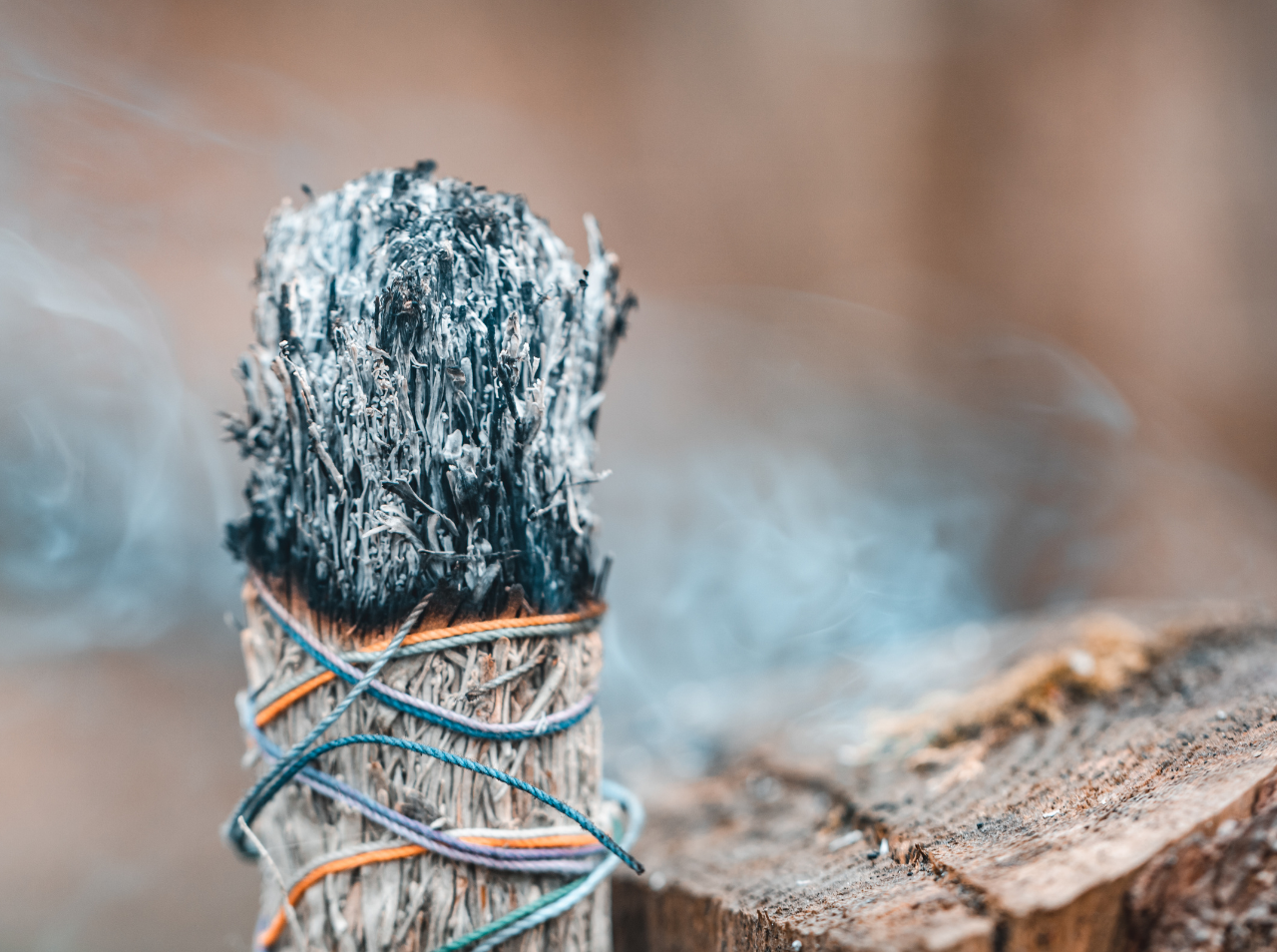One thing I’ve learned as I’ve gotten older is that there is always, always, always something new to learn. And one of the most fun things about being a writer is that my research takes me down some fascinating paths.
But there is (at least) one thing I didn’t learn enough about before writing the first two Soul Searchers mysteries, and that is the history of the indigenous practice of smudging. My failure to research the origins of this practice and the full definition of this term led to me unintentionally appropriate it within my books, and for all of those things, I apologize.
This is information I should have found out through my research before publishing my first book, but instead, I stumbled across it by chance. I recently joined an online forum for other people who share my religious beliefs, and one poster was asking for advice solving an ethical dilemma. He had purchased a bundle of white sage before learning the history around it and wasn’t sure if he should still burn it, or bury it, or what. Many commenters chimed in with helpful context around how “smudging” has been appropriated and various suggestions for how the original poster could move forward.
At first, I was relieved. The sage bundles my characters use are common green sage, not white sage, which is I learned is being overharvested to the point where it’s endangered. I thought that because I didn’t specify white sage in my stories, I hadn’t done any damage. To be honest, I think I knew in my gut that I had done something wrong and was desperately looking for a way to justify my word choices and put myself in the clear.
But as I kept reading and started searching for articles about the differences between “smudging” and “smoke cleansing,” I learned that while the process of “smoke cleansing” is historically present across a broad spectrum of cultures and religious groups, “smudging” is specific and sacred to certain indigenous peoples of the Americas.
I learned that it was illegal for Native Americans to practice many of their religious rites until 1978. 1978. People were jailed or killed just for performing rites such as smudging. So much for freedom of religion, right? I cannot imagine how painful it must be for someone who was forbidden from practicing their own religious rites to see non-Native people now freely appropriating and performing those same rights, down to using the same name.
Given what I know now, I don’t think it’s appropriate that I used the term in my books. The character who teaches Mackenzie a smoke cleansing ritual is not Native American, and in my imagination, she was pulling from Druidic tradition. I believe the general term “smoke cleansing” is more accurate and respectful.
I’ve updated the ebook and paperback editions of both Donn’s Hill and Donn’s Shadow to use “smoke cleansing” to describe Mackenzie’s rituals. Donn’s Legacy was edited after I learned the difference between these terms, and only uses “smoke cleansing.” I don’t want one of my stories to be the first place someone hears that term. I don’t want them to inherit my incomplete knowledge of it.
But I didn’t want to quietly do that and sweep this experience under the rug. I think it’s important to be able to recognize when we’ve made mistakes. None of us are perfect, and we’re all (hopefully) continuing to learn and grow. So I’m posting this here as a record of what I’m sure will not be the last time I had an opportunity to learn more about an issue.
Thank you for reading, and again, I apologize. I’m determined to do a better job examining the history of words and practices that aren’t part of my own cultural and religious identity before using them in my stories.

